In case you haven’t noticed, we are living in dangerous times. The war in Ukraine, now in its 7th month, rages on, and recent developments, Vladimir Putin’s [1]annexation of eastern Ukraine regions and the sabotage of the Nord Stream gas pipelines in the Baltic Sea, by, at this writing, culprits unknown, threaten to escalate the conflict into world war, in which the door would be opened to the use of nuclear weapons. On the other side of the world, the People’s Republic of China, insisting that the island of Taiwan, long an anti-communist and pro-West bastion going back to the days of Chiang Kai-shek[2], is rightfully the territory of the PRC, is threatening to reclaim the island by force. In such an event the United States has said it would aid Taiwan in the struggle to defend itself, thus opening the door to nuclear world war from a different quarter. In Taiwan’s case, the dispute is a remnant from the supposedly ended Cold War animosities of the late 1940s; old solutions becoming the current problem; too often the case in human societies. Similarly with Ukraine, which became an independent nation with the dissolution of the Soviet Union in 1991, an event that went down sideways with former KGB officer Putin and other hardline elements within the former USSR, there is a long and complicated history vis a vis Russia, much of it contentious. Frequently situations such as these lend themselves to sabre rattling, whether nuclear or conventional, between the bellicose nations, in which one mistake or provocation can lead to disaster. Compounding these situations, it seems the major countries involved currently have a dearth of leadership capable of the statecraft required to handle the problems without resorting to war. The sum of these things combine to create a dangerous scene, over which is suspended a “nuclear Sword of Damocles,”[3] as JFK called it, threatening to us all.
The current situations are not without precedent. Sixty years ago, almost to the day, the United States and the Soviet Union were engaged in a similar predicament, perhaps even more threatening: the Cuban Missile Crisis. On October 14th, 1962, a United States U-2 high-altitude spy plane photographed what appeared to be missile launch sites under construction on the island nation of Cuba, 90 miles from the coast of Florida. Once operational, missiles from those sites could deliver nuclear payloads to the entire eastern half of the United States, with the potential of killing tens of millions of Americans. John F. Kennedy, U.S. president at the time, knew there was no way he could let those missile sites become operational; the question being how to get the Soviets to stop the construction and ensure the removal of any missiles already in the island nation. To accomplish this, Kennedy decided on a naval blockade of Cuba as the best and least risky option to force the Soviet’s hand and get the missiles out. After a week of keeping the crisis top secret until he could formulate his response, on Monday, 22 October, JFK went on national TV and announced the situation and his handling to the stunned American people and the world.
Across the next six days the world teetered on the brink of nuclear war, coming far closer to disaster than those of us who lived through those times even realized. Kennedy was being pressured heavily by hardliners in his advisor group, telling him that the only effective measure for the Cuba problem was a combination of air strikes and invasion. Had he not kept his own counsel, nuclear war most certainly would have resulted, as, unknown to the President, his military chiefs and his intelligence agencies, there were 40,000 Soviet troops on the island, and their commanders had authorization to use tactical nuclear weapons, which they had in their possession and would have used in the event of a U.S. invasion. Likewise, Soviet Premier Nikita Khrushchev[4] was under heavy pressure from his own bunch of hardliners, demanding that he not knuckle under to pressure from the Americans to dismantle the launch sites and withdraw the missiles. The result was an impasse that threatened the world.
It was into this dire set of circumstances in 1962, that a new world player entered the scene: the leader of the Roman Catholic Church, Pope John XXIII[5]. On October 25th, at the height of the crisis, alarmed at the threatening situation being created by the super powers, Pope John published what today is called his “Plea for Moral Responsibility,” worded as follows:
“We implore all rulers not to remain deaf to the cry of humanity for peace. That they do all that is in their power to save peace. They will thus spare the world from the horrors of a war whose terrifying consequences no one can predict. That they continue discussions, as this loyal and open behavior has great value as a witness of everyone’s conscience and before history. Promoting, favoring, accepting conversations, at all levels and at any time, is a maxim of wisdom and prudence which attracts the blessings of heaven and earth.”
Addressed primarily to the leaders of the U.S. and Soviet Union, Kennedy and Khrushchev, Pope John’s words communicated universal and salient truths: that the people of the world want to survive and therefore want peace; that the way to accomplish this is through communication, not war. The message, which the Pope had delivered directly to the embassies of the two nations and which was headlined around the world, even in the Soviet newspaper, Pravda, therefore confronted Kennedy and Khrushchev with their primary moral responsibility as leaders.
History records that three days later, on October 28th, 1962, Nikita Khrushchev and John Kennedy negotiated a peaceful resolution to the Cuban Missile Crisis, with the U.S. agreeing to not invade Cuba and to remove aging missiles from its NATO ally, Turkey, in exchange for the Soviet dismantling of the launch sites and the removal of its missiles from Cuba. Though it is debatable, perhaps, what effect Pope John’s moral plea had on this process, a few months later, Khrushchev would comment that, at the time, the Pope’s message was, “…the only gleam of hope.”
All of this is no less relevant to the world situation today. The question is, with our “leaders” seemingly intent on rushing us headlong into a war that no one can win, who is there among us willing to confront them with their primary moral responsibility, as described by Pope John XXIII during the dark days of the Cuban Missile Crisis? The truth is, the vast majority of the people of the world, whether Chinese, American, Russian, Ukrainian, or any other nationality, want to survive and want peace. The Chinese or Russian shop keeper or farmer, in his heart, bears no ill will for his American or European counterparts. Those who say he does are lying. Pope John intuitively understood this, and was willing to use his “bully pulpit” to confront the leaders of his day with their moral responsibility. It remains to be seen who will perform that role today.
But, we are running out of time. If there is no “leader” about willing to make that stand, the message must then come from we, the people. It is we who must lead our “leaders”, by demanding they confront their moral responsibility to maintain the peace, to keep the world safe from war, and to be willing to communicate with each other until that is accomplished.
However we can; by whatever means possible, we must do this.
In today’s world, there is no greater moral imperative.
[1] Vladimir Vladimirovich Putin (born 7 October 1952) is a Russian politician and former intelligence officer who has been serving as the president of Russia since 2012, having previously served between 2000 and 2008. He was the prime minister of Russia from 1999 to 2000 and again from 2008 to 2012. Putin worked as a KGB foreign intelligence officer for 16 years, rising to the rank of lieutenant colonel, before resigning in 1991 to begin a political career in Saint Petersburg. He moved to Moscow in 1996 to join the administration of president Boris Yeltsin. He briefly served as director of the Federal Security Service (FSB) and secretary of the Security Council, before being appointed as prime minister in August 1999. After the resignation of Yeltsin, Putin became acting president and, less than four months later, was elected outright to his first term as president. He was reelected in 2004. As he was constitutionally limited to two consecutive terms as president at the time, Putin served as prime minister again from 2008 to 2012. He returned to the presidency in 2012 in an election marred by allegations of fraud and protests and was reelected in 2018. In April 2021, following a referendum, he signed into law constitutional amendments including one that would allow him to run for reelection twice more, potentially extending his presidency to 2036.
[2] Chiang Kai-shek (31 October 1887 – 5 April 1975) also known as Chiang Chung-cheng and Jiang Jieshi, was a Chinese Nationalist politician, revolutionary and military leader, who served as the leader of the Republic of China (ROC) from 1928 to his death in 1975 – until 1949 in mainland China and from then on in Taiwan. After his rule was confined to Taiwan following his defeat by Mai Zedong and his communistsin the Chinese Civil War, he continued claiming to head the legitimate Chinese government in exile.
[3] On September 25th, 1961, U.S. President John F. Kennedy gave an address to the UN General Assembly in which he stated: “Every man, woman and child lives under a nuclear ”sword of Damocles,” hanging by the slenderest of threads, capable of being cut at any moment by accident or miscalculation or by madness. The weapons of war must be abolished before they abolish us.” The “sword of Damocles” is a modern expression, which to us means a sense of impending doom, the feeling that there is some catastrophic threat looming over us. The expression comes to us from the writings of the Roman politician, orator, and philosopher Cicero (106-43 BC). Cicero’s point was that death looms over each of us, and we ought to try to be happy in spite of that.
[4] Nikita Sergeyevich Khrushchev[a] (15 April 1894 – 11 September 1971) was the First Secretary of the Communist Party of the Soviet Union from 1953 to 1964 and chairman of the country’s Council of Ministers from 1958 to 1964. During his rule, Khrushchev stunned the communist world with his denunciation of Stalin’s crimes, and embarked on a policy of de-Stalinization. He sponsored the early Soviet space program, and enactment of relatively liberal reforms in domestic policy. After some false starts, and a narrowly avoided nuclear war over Cuba he conducted successful negotiations with the United States to reduce Cold War tensions. In 1964, the Kremlin leadership stripped him of power, replacing him with Leonid Brezhnev as First Secretary and Alexei Kosygin as Premier.
[5] Pope John XXIII was head of the Catholic Church and sovereign of the Vatican City State from 28 October 1958 until his death from stomach cancer on June 3rd, 1963. Besides his “Plea for Moral Responsibility” issued during the Cuban Missile Crisis, he is most famous for his Papal encyclical, “Pacem in Terrris” (Peace on Earth), which he completed and published on April 11th, 1963, a couple of months before his death. In Pacem in Terris Pope John stresses that world peace can only be obtained by observance of what he termed “the divinely established order” which included and acknowledgement of the fundamental rights of man.
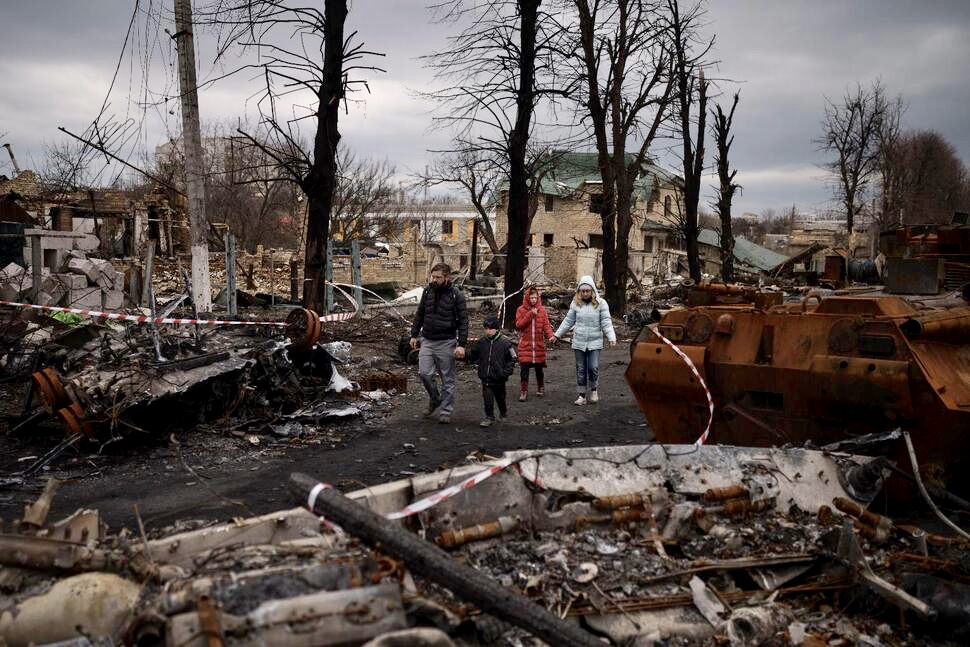
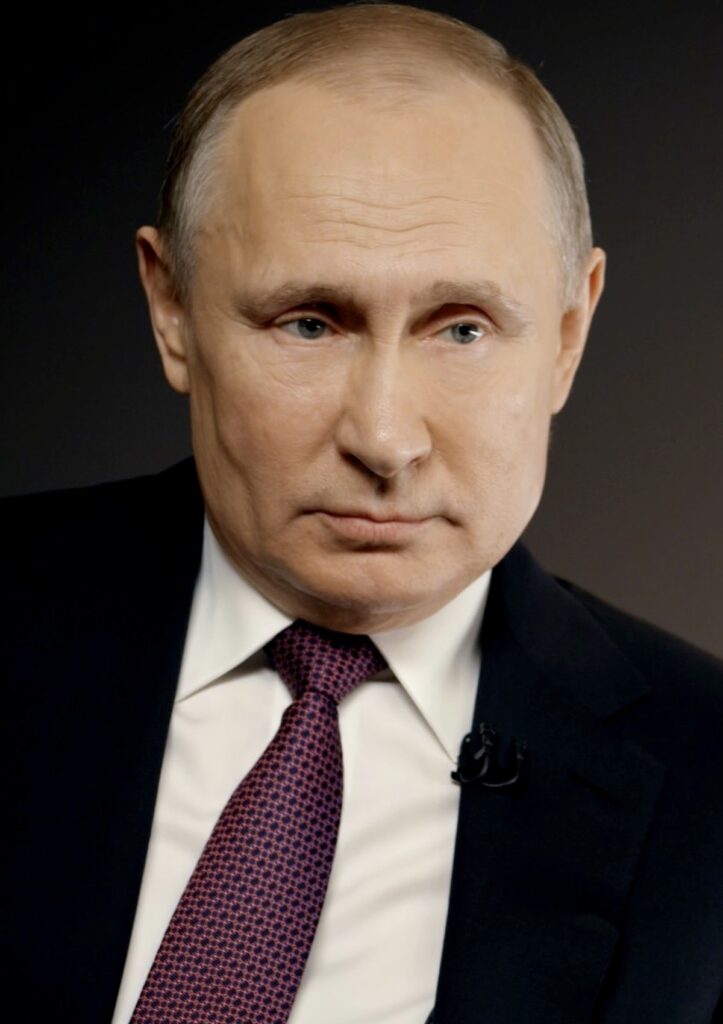
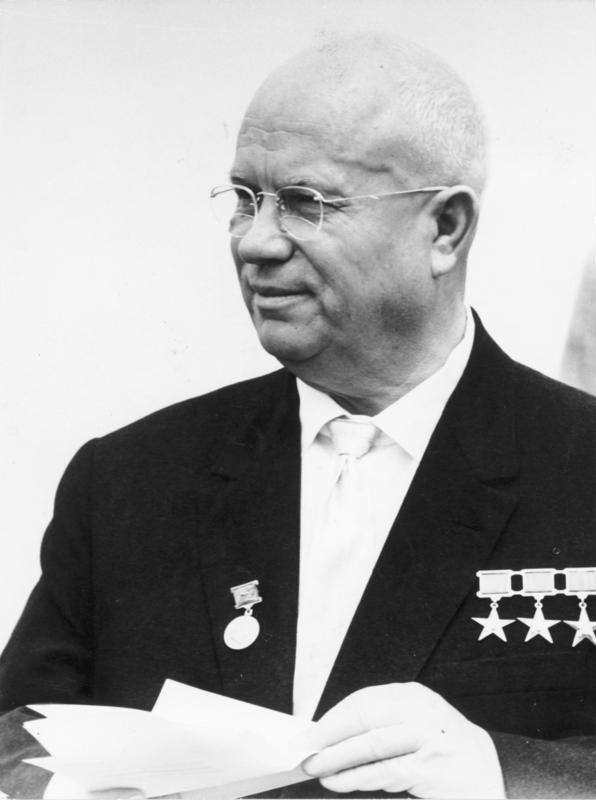
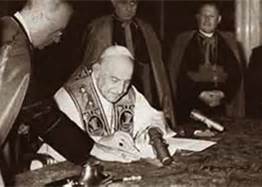
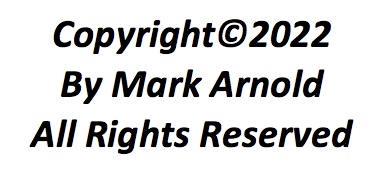

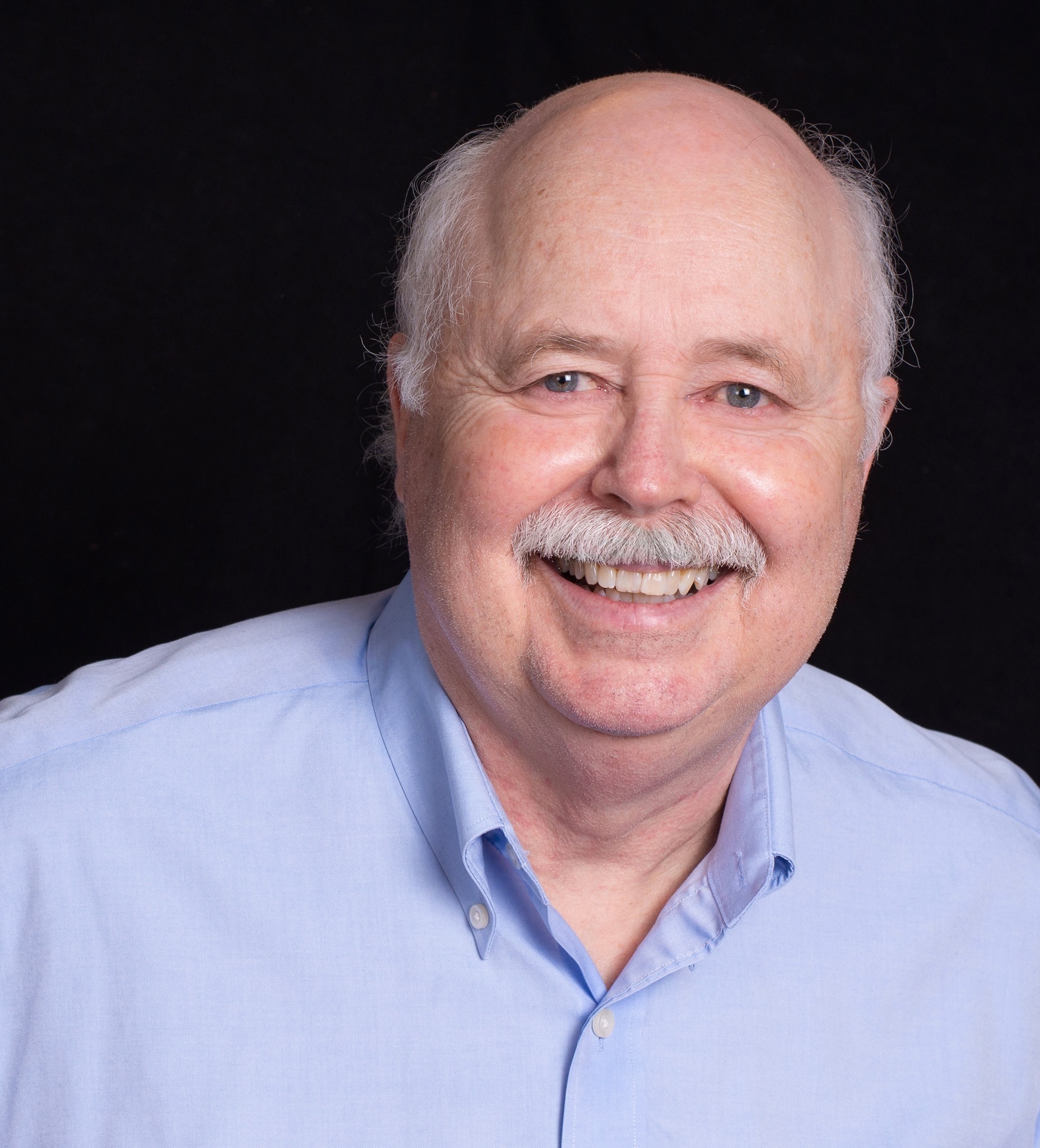
3 Responses
Regarding the Ukraine-Russia war, there is a third party that created and continues the conflict. Historians and academics can easily spot it, but this third party is never mentioned in the media as such.
Very apt comparison with the Cuban missile crisis. As you wrote, we came closer to nuclear annihilation than anyone at the time knew. The story of the Soviet submarine commander that disobeyed orders in order to save the world comes to mind.
Thanks for commenting, Erik. Astute observation re: the 3rd Party. Re: the Soviet sub, It sounds like you know your history. Thanks, again! MA
Thanks